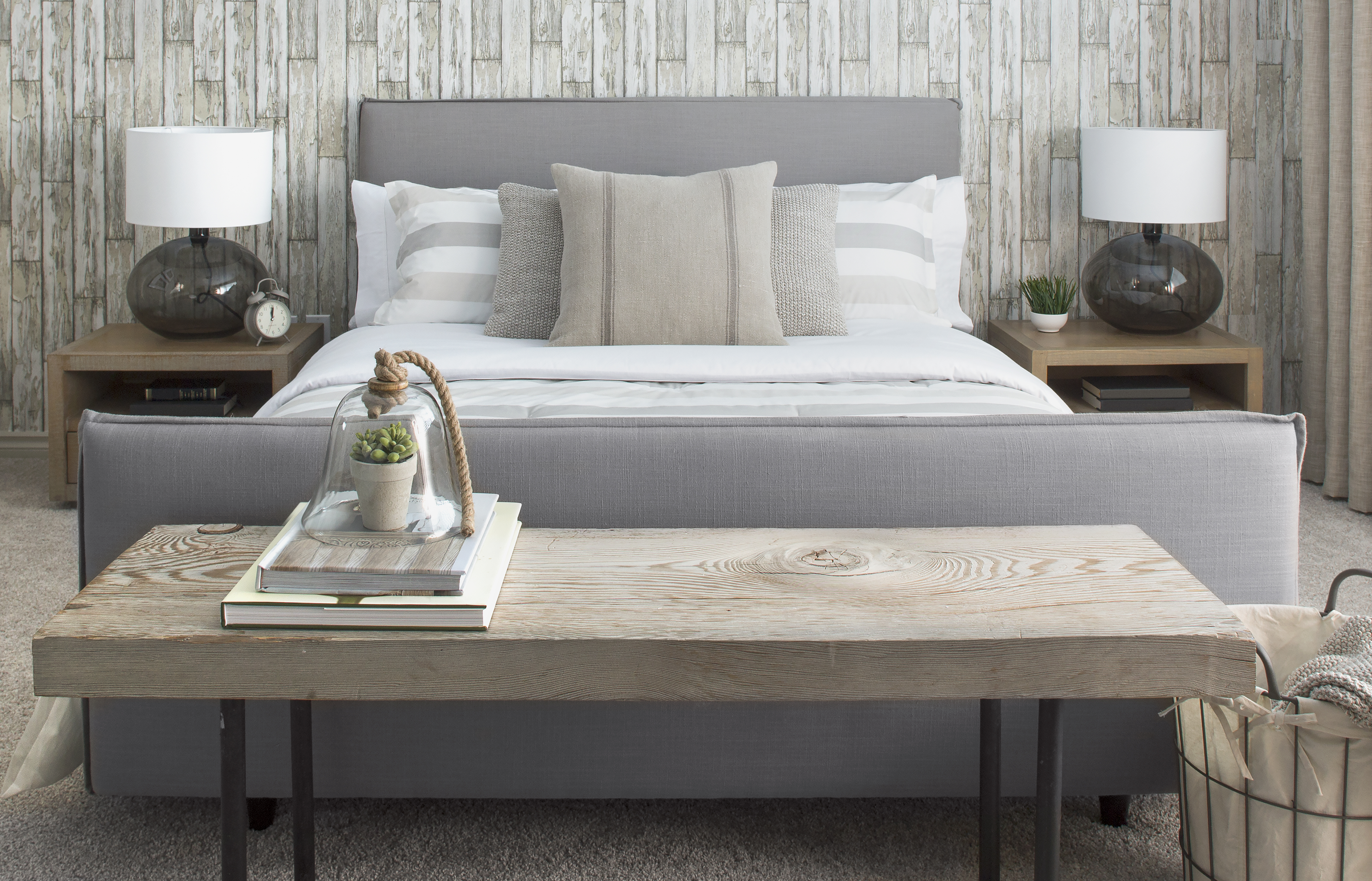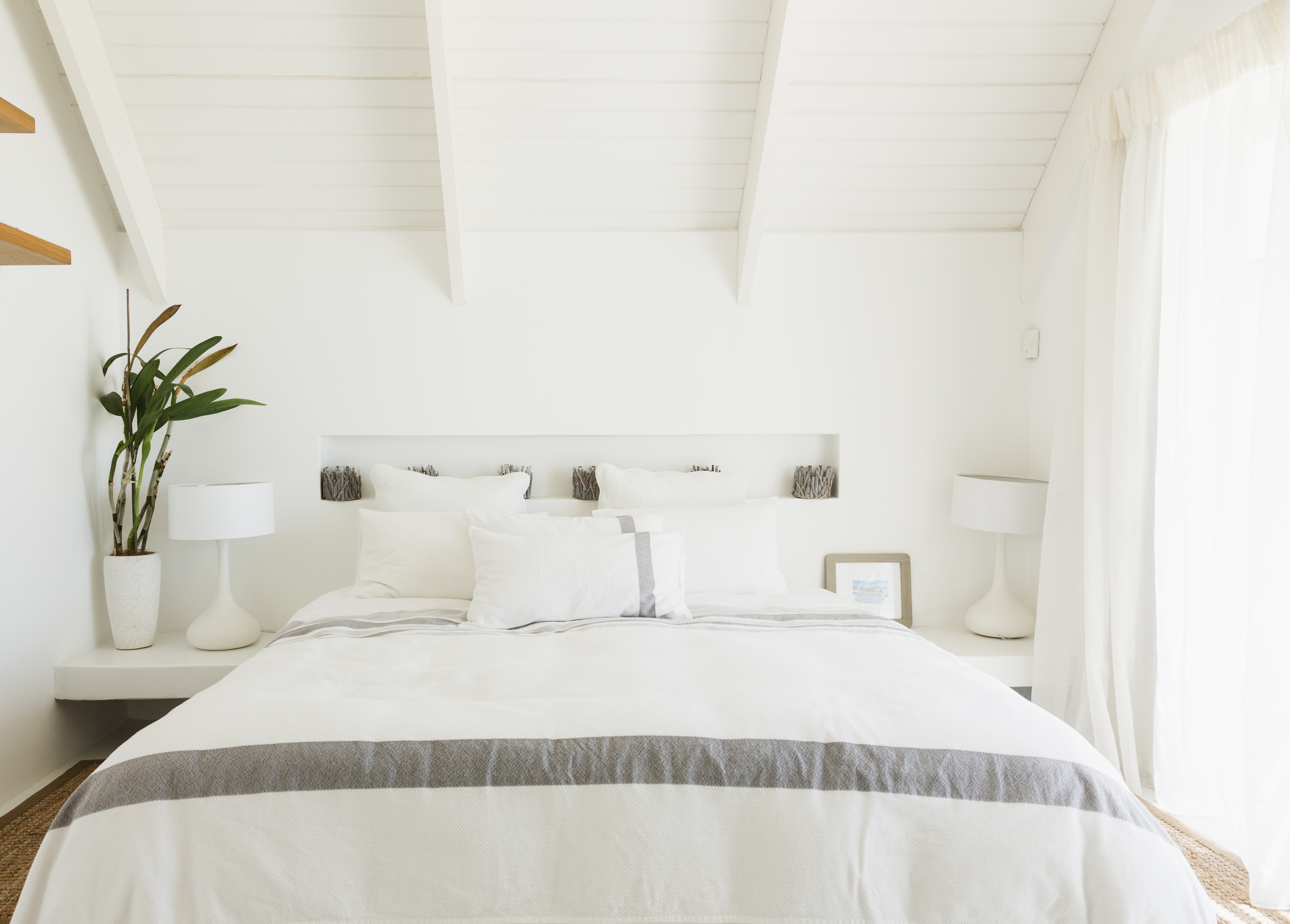7 Simple Bedroom Changes That Will Help You Catch More Zzzs

Considering you spend a third of your life in bed — sleeping, reading, resting, talking, or whatever else you like doing — your bedroom should be a restful sanctuary where you feel comfortable and relaxed whether you’re asleep or awake. If you can’t remember the last time you had a good night’s sleep, here are some simple ways you can turn your bedroom into a tranquil sleep haven.

(Photo Credit: Getty Images)
Choose your colors wisely.
You may not realize it, but the colors in your room can affect your sleep. A brightly colored wall can trigger your senses subconsciously — so choose soothing colors for your bedroom, like soft blues, pinks, yellows, greens, or off-whites, which will help you drift off faster. This includes your comforter: Choose simple, calming patterns.
SIMBA sleep psychologist Hope Bastine knows that bedroom decor is key to promoting a good night’s rest. “Research has found that red is exciting, while blue promotes competence,” she says. “Another study showed that reds and yellows increased anxiety, compared to blues and greens. In general, softer, muted colours promote tranquillity.”
Get yourself a good mattress.
A comfortable bed and the right supportive pillow are by far the most important items to help you drift off with ease. The Sleep Health Foundation recommends keeping your head in “neutral alignment” — the way you would when standing up with good posture.
Eliminate clutter.
Aim to keep your room tidy at all times. Remove any clothes from the floor before bedtime, keep your wardrobe tidy and the doors closed at night, and try to keep your furniture and possessions in this room to a minimum.

(Photo Credit: Getty Images)
Make it a TV and technology-free zone.
Many sleep specialists suggest that this widespread exposure to blue light, long after sunset, is a major contributor to the modern epidemic of insomnia.
TVs do not belong in the bedroom, plain and simple. Watching TV before bed will overstimulate your brain and make it harder for you to switch off and unwind. The same goes for laptops or adding an office desk in your room. When you’re in the bedroom, sleep should be your only concern, so keep all these distractions and temptations far away.
Try sleep-inducing scents.
Soft, soothing scents like lavender and jasmine will get you in the mood for sleep. Place a room diffuser on your dresser and if you’re really struggling to snooze, add a few drops of lavender essential oil to a tissue and place it under your pillow.
Create a silent atmosphere.
Even the slightest tick from your clock can interrupt your sleep patterns. Adding heavy curtains will help drown out some of the street noise. If you don’t like dead silence, then turn on a fan or a white noise machine at bedtime (these sounds have a more constant rhythm, which can be soothing, unlike the irregular interruptions that cars driving by can cause).
Get the lighting right.
Did you know light can inhibit the secretion of melatonin, which is a hormone that acts like your body’s natural sleep drug? Install heavy curtains or blinds that completely block out all light to help you drift off. Lights from a digital clock can also disrupt sleep, so turn these away from your face. A dark room will also be cooler, which is more ideal for sleep than a hot, stuffy environment.
This post was written by Homes to Love editors. For more, check out our sister site, Homes to Love.
More From FIRST
Frozen Sheets and Bedtime Yoga: Some Tips to Help You Sleep Through a Heatwave
10 Yoga Poses to Do in Bed to Ease Pain and Have the Best Sleep of Your Life
















